Finding the perfect canine companion for your family can be a joyful yet challenging journey, especially when shedding is a significant concern. For many households, the dream of a furry friend often comes with the dreaded reality of dog hair clinging to every surface. Fortunately, numerous small dog breeds offer all the charm and companionship without the constant cleanup. If you’re seeking a small dog that sheds minimally or not at all, you’re in the right place. This guide explores various breeds renowned for their low-shedding coats, making them ideal for families and individuals who want to enjoy the love of a dog without the shedding hassle.
Understanding the “Non-Shedding” Myth and Reality
It’s important to clarify that no dog is truly 100% non-shedding. All dogs shed to some extent, but some breeds shed significantly less than others. These dogs often have hair that grows continuously, much like human hair, rather than shedding seasonally. This means they require regular grooming to prevent matting and keep their coats healthy and tidy. For families, this translates to less vacuuming, fewer allergy triggers, and a cleaner home environment. When considering top small dog breeds that don’t shed, it’s crucial to balance the low-shedding benefit with the grooming commitment required.
Popular Small Non-Shedding Breeds for Families
The world of small, low-shedding dogs is diverse, offering a breed to suit almost every family’s lifestyle and personality. Here, we delve into some of the most beloved options:
Affenpinscher
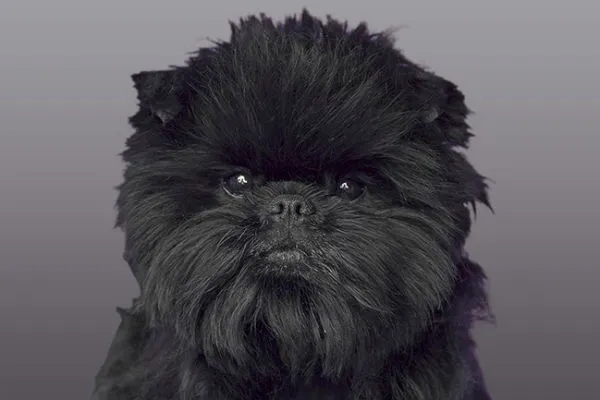 Affenpinscher dog with alert expression
Affenpinscher dog with alert expression
The “monkey-like terrier,” as its name suggests, is a fearless and intelligent little dog. The Affenpinscher boasts a wiry coat that sheds very little and has a minimal “doggy” odor. Their grooming needs are relatively low, requiring brushing only twice a week. Their humorous and alert nature makes them a delightful addition to any family, always keeping an eye on things and never failing to bring a smile.
Basenji
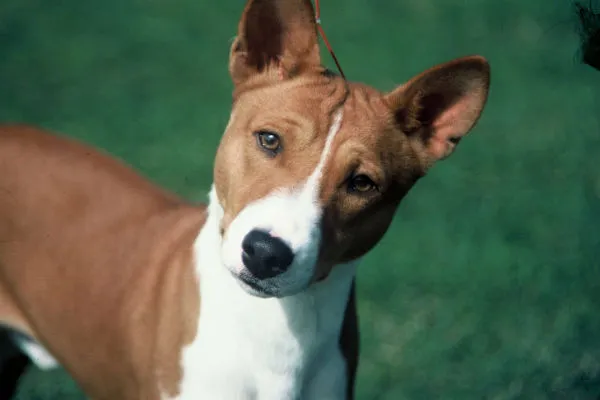 Basenji dog with alert posture
Basenji dog with alert posture
Often called the “barkless dog” (though they do make unique yodeling sounds), the Basenji is a unique hound that sheds minimally. Their short, fine coat is easy to maintain with occasional brushing. Basenjis are known for being exceptionally quiet, making them well-suited for apartment living, provided they receive adequate daily exercise and mental stimulation. Their independent spirit and graceful appearance are captivating.
Bichon Frise
 Fluffy white Bichon Frise dog
Fluffy white Bichon Frise dog
The Bichon Frise is a quintessential non-shedding small dog breed, making them a fantastic choice for families with allergy sufferers. These cheerful and affectionate dogs have a continuous-growing hair that requires regular grooming and brushing to maintain their signature “powder-puff” look. Their playful personality and loving nature make them wonderful companions for children and adults alike. The Bichon Frise is truly one of the types of dogs small that don’t shed that brings joy and comfort.
Bolognese
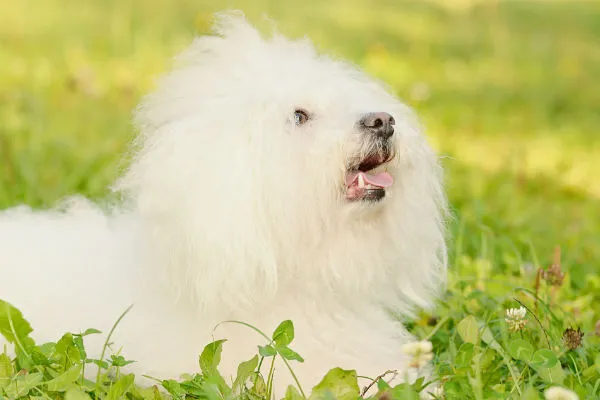 A Bolognese dog with a fluffy white coat
A Bolognese dog with a fluffy white coat
Similar to the Bichon Frise, the Bolognese possesses a distinctive fluffy coat made of hair, not fur. This breed does not shed, but it requires daily grooming to prevent tangles and keep their lovable lapdog appearance. Their gentle and affectionate temperament makes them excellent family pets, known for forming strong bonds with their owners.
Brussels Griffon
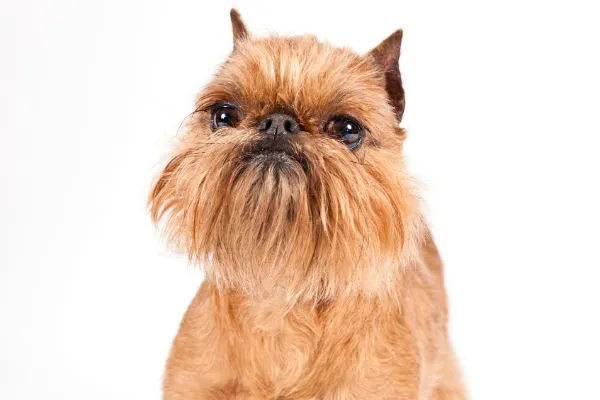 Brussels Griffon with expressive eyes
Brussels Griffon with expressive eyes
Don’t let their small size fool you; Brussels Griffons are sturdy and adaptable dogs. Available in both smooth and rough-coated varieties, they are minimal shedders and thrive with regular grooming. Their exercise needs can often be met with daily walks and indoor play, making them suitable for various living situations. They are loyal companions that do best when their families are frequently home.
Chinese Crested
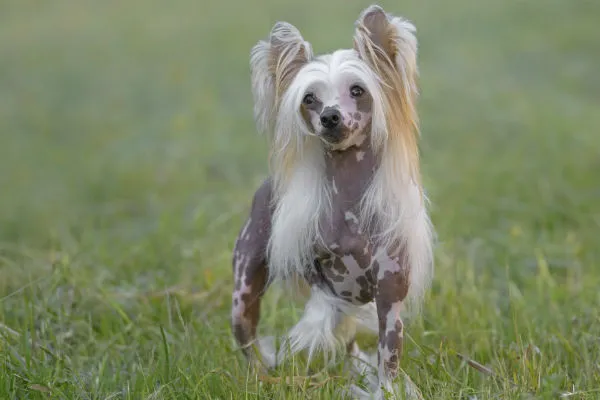 A hairless Chinese Crested dog
A hairless Chinese Crested dog
The Chinese Crested offers a unique approach to low shedding, with two coat types: hairless and powderpuff. The hairless variety has hair only on its head, feet, and tail, while the powderpuff has a fine, soft coat that sheds minimally. Hairless Chinese Cresteds require special skin care, including protection from sun and cold, and are more prone to skin irritations. Their playful and affectionate nature makes them endearing family pets.
Coton de Tulear
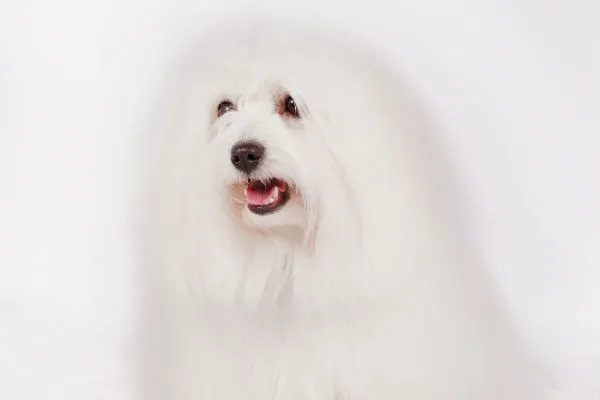 A Coton de Tulear with a long, fluffy white coat
A Coton de Tulear with a long, fluffy white coat
The Coton de Tulear is renowned for its distinctive, long, fluffy coat, often considered hypoallergenic. This makes them an excellent choice for families with allergy concerns and those seeking a small dog that doesn’t shed much. While their beautiful coats require daily grooming to prevent matting, their lighthearted and gentle disposition makes the effort entirely worthwhile. Exploring the list of small dogs that don’t shed will invariably lead you to this charming breed.
Havanese
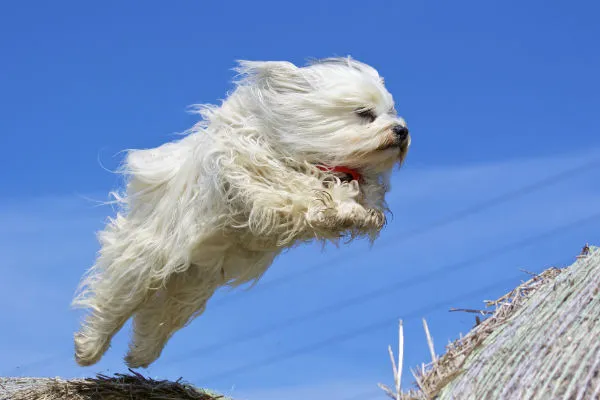 A Havanese dog with a long, flowing coat
A Havanese dog with a long, flowing coat
Hailing from Cuba, the Havanese is a breed filled with spunky charm and a coat that remarkably doesn’t shed. This means less time spent de-linting your furniture and more time enjoying playful romps with your furry friend. Their coat requires weekly brushing and regular baths to stay clean and healthy. Their outgoing and friendly nature makes them exceptional family pets.
Maltese
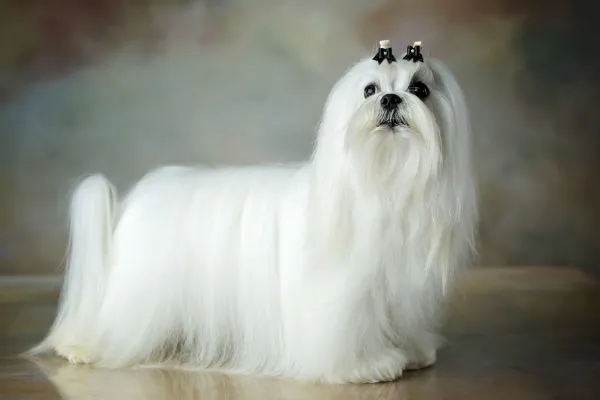 A pristine white Maltese dog
A pristine white Maltese dog
With a history spanning three millennia, the Maltese has long been a beloved lapdog. Their long, white coats shed very little, contributing to their appeal as an ideal companion for those seeking minimal shedding. Regular brushing is essential to prevent mats, and occasional baths keep their silky hair looking its best. Their gentle and affectionate nature makes them a perfect fit for families.
Lhasa Apso
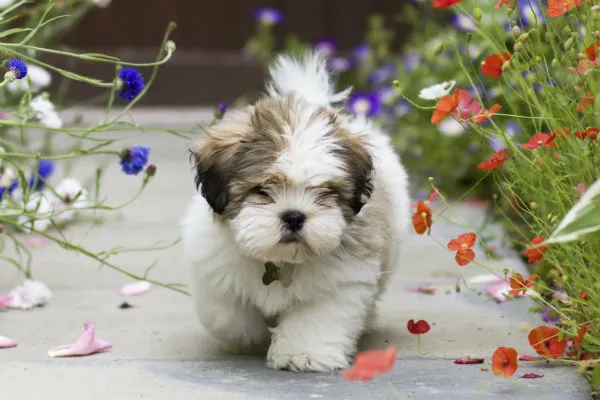 A Lhasa Apso with a long, flowing coat
A Lhasa Apso with a long, flowing coat
Originating from Tibet, the Lhasa Apso is a small dog breed that excels as a companion. They are calm yet playful, enjoying both brisk walks and relaxing on their owner’s lap. Lhasa Apsos do not shed, but their coats require consistent maintenance. Many owners opt for a “puppy cut” to simplify grooming and avoid the daily brushing of their long hair.
Miniature Schnauzer
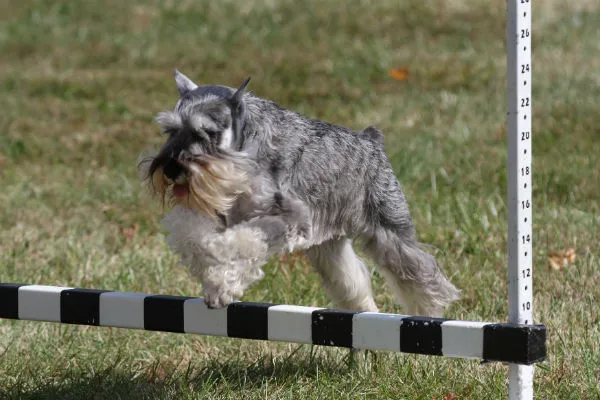 A Miniature Schnauzer with a distinguished beard
A Miniature Schnauzer with a distinguished beard
The Miniature Schnauzer is a smart, cheerful, and highly trainable dog that sheds very little. Their adaptability allows them to thrive in both urban and rural environments, as long as they are close to their families. Weekly brushing and regular professional grooming are recommended to keep their wiry coats in top condition. These small dog breeds that don’t shed a lot are known for their spirited personalities.
Poodle
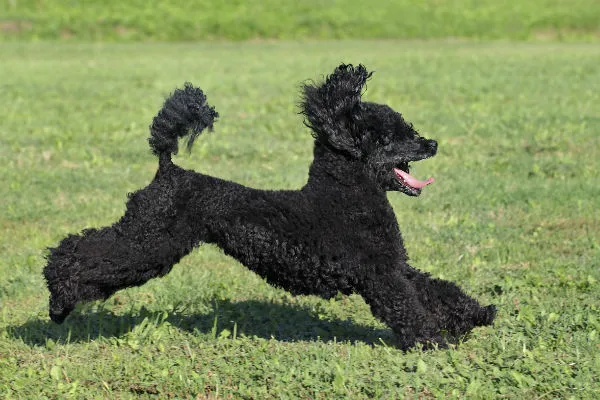 A Poodle with a stylized haircut
A Poodle with a stylized haircut
When people think of small, non-shedding dogs, the Poodle often comes to mind, and for good reason. Poodles, including the Miniature and Toy varieties, are non-shedding and considered hypoallergenic. Their high intelligence makes them exceptionally easy to train, and they are an active and proud breed. Regular grooming is essential to manage their continuously growing hair.
Scottish Terrier
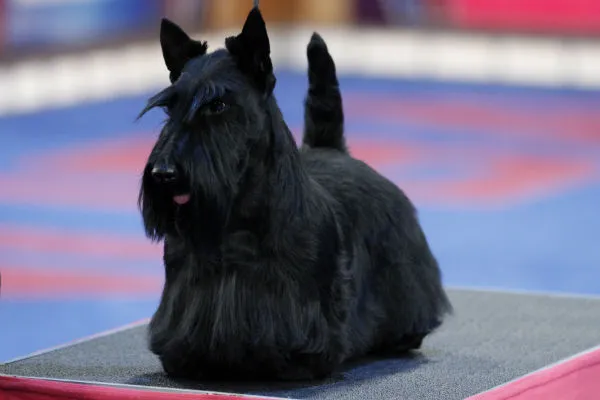 A Scottish Terrier with a distinctive profile
A Scottish Terrier with a distinctive profile
The Scottish Terrier, or Scottie, is a bold and confident terrier with a big personality. Their wiry, weather-resistant coat sheds very little. However, they require regular brushing, grooming, and occasional hand-stripping to maintain coat health and breed-specific appearance. Scotties are clever and independent, with strong prey drives, so care should be taken around smaller animals.
Shih Tzu
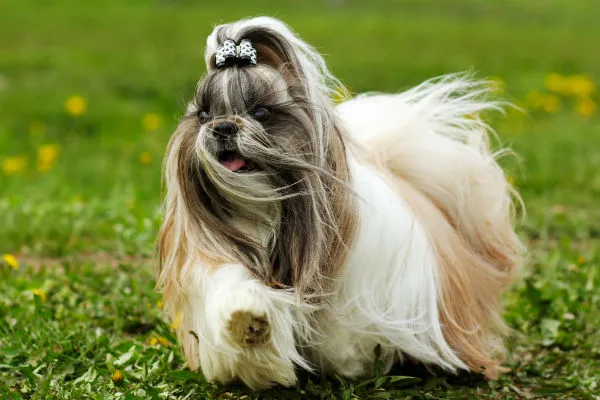 A Shih Tzu with a long, regal coat
A Shih Tzu with a long, regal coat
With a royal ancestry, the Shih Tzu, meaning “little lion dog,” is known for its long, silky, and very low-shedding hair. When brushed out, their coat looks exceptionally regal, befitting their history as favored pets of Chinese dynasties. These sturdy and lively toy dogs are gentle and trusting, making them exceptional companions.
West Highland White Terrier
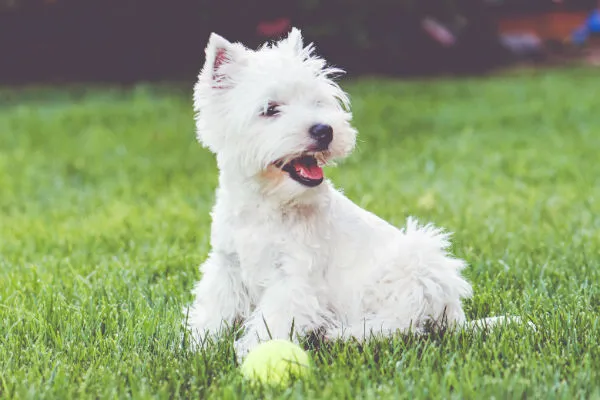 A West Highland White Terrier smiling
A West Highland White Terrier smiling
Affectionately known as “Westies,” these terriers have a coarse, white coat that sheds very little. They are intelligent, loyal, happy, and highly entertaining dogs with moderate energy levels and an independent streak common to terriers, which can sometimes make training a playful challenge. Their curious nature and endearing personality make them beloved family pets.
Xoloitzcuintli
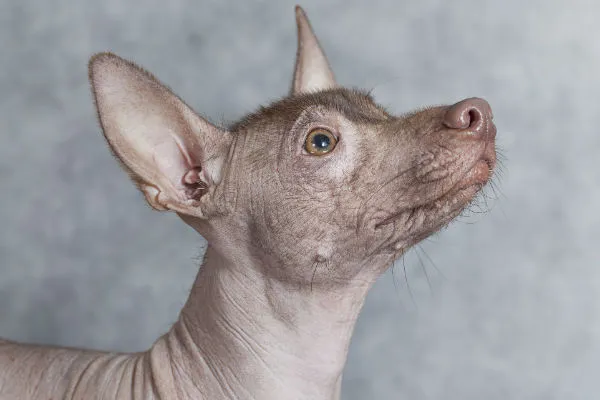 A hairless Xoloitzcuintli dog
A hairless Xoloitzcuintli dog
Also known as the Mexican Hairless dog, the Xoloitzcuintli is an ancient and rare breed that can be hairless or coated. The hairless variety has minimal hair on its head, and the coated variety has a short, fine coat that sheds minimally. As with all hairless breeds, the Xolo requires special skin care to protect them from environmental elements. They are attentive watchdogs and affectionate companions, known for their tranquil demeanor at home.
Yorkshire Terrier
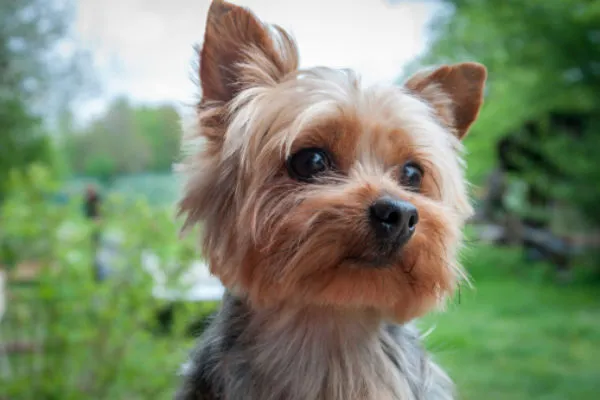 A Yorkshire Terrier with a beautifully groomed coat
A Yorkshire Terrier with a beautifully groomed coat
The Yorkshire Terrier, or Yorkie, is a spirited, affectionate, and toy breed packed with personality. These spunky lapdogs are a popular choice for good reason: they do not shed. Their silky coats are stunning when brushed daily, a task made easier by their small size. Don’t let their refined appearance fool you; these fearless terriers once hunted rats in mills, though today they are equally content to be cuddled on a lap.
Beyond the Breed: General Care for Low-Shedding Dogs
While these breeds offer the advantage of minimal shedding, they are not maintenance-free. Regular grooming is crucial:
- Brushing: Consistent brushing, ranging from a few times a week to daily depending on the breed, prevents mats and tangles, keeping the coat healthy and reducing the risk of skin issues.
- Bathing: Occasional baths with gentle, dog-specific shampoos are necessary to keep their coat clean and free from odors.
- Professional Grooming: For breeds with continuously growing hair, like Poodles or Bichon Frises, regular professional grooming may be necessary to maintain their desired style and health.
Beyond grooming, remember that all dogs, regardless of shedding level, require a balanced diet, regular exercise, consistent training, and frequent veterinary check-ups to ensure their overall health and well-being. When choosing a breed, consider factors like energy levels, temperament, and training needs to ensure a harmonious fit with your family. For those seeking quiet small dogs that don’t shed, research within these breeds can reveal specific individuals or lines that align with your preferences.
Conclusion
Bringing a dog into your family should be a source of joy, and for many, minimizing shedding is a key factor in achieving that goal. The breeds discussed offer a fantastic array of personalities and traits, all while significantly reducing the amount of dog hair in your home. By understanding their specific grooming needs and general care requirements, you can confidently select a small, non-shedding dog that will be a beloved and integral part of your family for years to come. Always remember to source your puppy from a reliable breeder and provide a high-quality diet and regular veterinary care for a happy, healthy companion.
